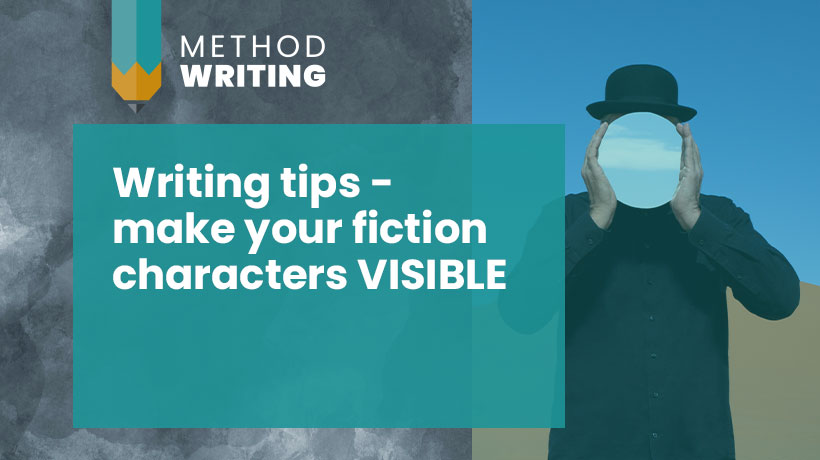Writing style: 10 tips for writing authentic voices
When writing authentic character voices, how accurate do you make the dialogue? Especially with non-mainstream accents?! Blog reader B.V. Cooper sent this question in connection with the Southern US country accents in his non-fiction book. His characters are based on actual people with accent variations that include “poor grammar, incorrect pronunciation etc. Does this detract from the story? Or make the characters more believable?”
Great question! Especially for a linguist who rejects the idea of poor grammar and pronunciation. Received standards are nothing to do with quality, and everything to do with who’s writing the dictionary.
I sometimes write characters with Scottish accents, so this issue is important for my writing, too. BV had encountered conflicting feedback from other writers, and it’s far from a cut-and-dried issue. So here are my 10 tips for authors writing accents in the English language.
First off, and to cut to the chase, there’s a short, practical answer, which is:
- Vivid over bland every time
- Hint at accent and dialect, but don’t overdo it
- Use rhythm for the music of the voice
- Use occasional lexis (words, vocabulary) for colour
- Don’t fuss about spelling and punctuation.
But there’s a longer and more involved answer, too. So if you’re interested in writing English-speaking accents and dialects, read on!
1. Accents give characters a distinctive life
Accents are wonderful. Give me a lively, distinctive voice over a mundane, bland one any time. Almost any time! See some caveats down below.
If all your characters sound the same, with cookie-cutter voices, they’ll be dull, and readers will struggle to tell them apart.
In scriptwriting, aspiring scriptwriters are sometimes invited to cover the character names, and see if they can be identified from the dialogue alone. That’s very hard to achieve! But it’s an interesting test. Dialogue is a vital part of a character’s expression. It’s their rhythm, breath, music. So it needs to leap off the page. Accent is one way to make a voice stand out.
Here’s a great example from BV’s book:
On the day we were moving back South to Virginia, Angelo [a New York businessman] come over to our fence and said, “You know, you’re the only Sudden guy I met. You ain’t as bad as I expected. You take care of yourself. Anybody gives you any s*** down in Virginia, you gonna call me, right?”
Now imagine the same character saying:
“You know, you’re the only Southern guy I’ve met. You’re not as bad as I expected.”
Suddenly, this born-and-bred New York guy sounds – well, British! The distinctive accent we can hear as readers – that wonderful “Sudden” – and the essence of the character have disappeared.
Accents can make the difference between stand-out memorable and utterly forgettable. I know I’ll remember “Sudden” and instantly see that guy.
2. Dialect and vocabulary
“Sudden” is BV’s way of using spelling to evoke dialect, just as I might write “yersel” to evoke the Scots pronunciation of “yourself”. This is known as transliteration.
But there are other ways to evoke dialect – for example, using words or vocabulary (lexis) to create a sense of colour.
I love the Scots words “clarty” for “mucky”. Try saying it. Clarty. Does it intrigue you? BV’s family had “fried baloney” for Sunday breakfast. I’ve no idea what that is, but it sounds extremely tasty. It catches my attention!
A few well-chosen dialect or regional words sprinkled into your characters’ dialogue can bring their world memorably to life, and create a sense of magic and rhythm. Just don’t overdo it, and establish a clear context, so readers know roughly what the word refers to – eg “baloney” is obviously something to eat.
3. Regional accents also have distinct grammar
The role of grammar in dialect and regional speech is often overlooked. Grammar is slightly different in every dialect. Even everyday phrases can be rendered quite differently and help bring voices to life.
For example, in Scots English, we often say “what did you have for your tea?” A very ordinary expression, but the use of possessive pronoun “your” along with “tea” is distinctive. We also say “what did you get for your birthday/for your Christmas?” People don’t use that grammar in England.
BV’s story has the line “Ain’t neither one of them”. A fascinating double negative! And yet an everyday expression. Or how about this: (about the baloney) “I git half the say in how it gits et.” “Et” is an unusual past participle variant of “eaten”. Listen to the rhythm and how it lands with a punch: “how it gits et”. It really helps to conjure the character for me.
The grammar of different dialects is fascinating for linguists, and brilliant for writers, too. It makes it possible to create the rhythms of someone’s language without using distracting spelling or unusual words.
4. How you write an accent is political
If you’re a linguist, all accents are equal, and there’s no such thing as standard (see 6). But many of us are brought up to judge different accents as “poor grammar” or lower status. So it follows that decisions about how to portray an accent can be fraught. And views on this can change over time, too.
For example, for many years, Scots language and spelling was seen as a deviant form of English. So even though most people spoke it at home, at school, they were discouraged from speaking and writing it. This has happened to many, many languages where powerful political forces wanted to squash a different culture.
So choosing to portray a “non-standard” language variant is a statement: you’re standing up for the language by giving it exposure in print. If you’re a speaker of a non-standard dialect, you may be making an important contribution by keeping it alive in book form.
5. An authentic voice doesn’t need faithful transliteration
Sometimes, it’s possible to write an accent so faithfully that even people speaking the same language can’t understand it. For example, people in my town might say “he was fair tane wi hissel”. But would you know what that meant? (He was in love with himself, extremely taken with himself).
It might be fine for a short passage in context, but what about a whole book? I know I’d struggle to read a whole book in a strong Scots dialect. Partly, it’s about getting used to it – there are so few books written in dialect out there. But it’s also because we have to slow right down and decipher it like a code. So we’re less immersed in the story (see 10).
Literary writers like James Kelman sometimes strive for a faithful transliteration of their dialect. But even then, what you transmit as a writer may not be what’s received by the reader.
I once tried to use a learner German dictionary written by (I’m guessing) a southern UK English speaker. The pronunciation of Kirche (church) was rendered as KEERsher. Any Scots speaker using this guidance would say the word completely wrongly. Scots can easily pronounce the German ch, and why would anyone want to add an r to the end of Kirche?
Transliteration is also a matter of degree. Do you stop at ‘apologetic apostrophes’? Do you render glottal stops? Where do you stop and start?
Transliteration is a fraught business! So if you want to reach more readers, it’s probably best to use hints and flavours, rather than full-on transliteration.
6. Context and audience are crucial
If you write for a global readership and want to sell as many books as possible then, sad to say, a faithful rendition of a strong regional accent won’t help.
This is tough to hear for those of us who write in, say, the Scots language. We’d far rather readers made the effort to understand us, or meet us halfway.
There’s definitely a place for strong regional accents and dialects in writing. But the market Is likely to be literary (small), regional (small) or experimental (small). Factor in the intersectionality of all three at once, and your Venn diagram shows a very small niche indeed. How many literary, experimental Scots language readers do I know in my rural region? At most, two!
So writing strongly in that dialect won’t sell books. But it might win you kudos for a brave and unique effort. If that’s your definition of success, go for it.
Again, there’s a spectrum of language choices. It may be best to aim for a compromise that captures the flavour of your chosen dialect, without alienating general readers.
7. Standard English doesn’t exist
Although many people talk about “Standard American English”, “Standard English” and “Received Pronunciation”, these are artificial constructs. They’re an idealized or imagined version of the language. They’re a practical convention used in teaching and reference books.
No one really speaks exactly that form of English, unless they’ve learned it as actors, or had speaking lessons. However, standard forms of the language have been extremely influential. They’ve been taught in schools and published in schoolbooks for generations. We’ve heard them used in film and on TV so much that they’re as familiar as our own regional accents.
This situation is changing. It’s more usual to hear regional accents on mainstream TV now. But with writing, it’s different. The “standard” versions of our language are deeply embedded, familiar and respected. They have high social status, and so many people feel they have to use them in certain contexts.
But the truth is, they’ve arisen from social context and the power of the people writing the dictionaries. This alone should liberate you from any hang-ups about using different language variants.
8. Language keeps evolving
Dictionaries create the illusion that language is static and set in stone. However, language is alive, fluid, shapeshifting and full of constant change. People are wonderfully creative and inventive with language, and even tiny communities and family groups create their own.
There’s no reason you can’t make up your own words, just as you might make up a song or tune.
9. There’s no one correct way to write a voice
Other writers may advise you on how to write your characters. However, beware of back-seat driving. There are no rights and wrongs here. You’ll have your own ideas and intentions for your characters, readers and book. Get clear about your audience, and trust your own instincts.
10. Is immersiveness important to you?
The concept of reader immersion vs detachment is important in writing dialects. ‘Immersion’ being: the language is familiar enough so that people can dream, rather than think. They can get hypnotised by the story, skimming the words, and get swept along.
‘Detachment’ being: if readers have to work at decoding what they’re reading, they are using the cognitive, thinking part of their brain. So they’re less caught up in it emotionally.
This is a huge question for writers. And this, too, is political (see 4). Some writers want readers to get swept along in the magic. Others want to disrupt the illusion (the fictive dream) and encourage readers to step back and think. The playwright Bertolt Brecht put songs into his plays to disrupt the illusion for exactly that reason.
It’s not a this-that dichotomy. It’s much muddier than that. But it’s good to consider the question.
Some final questions:
- Who’s your audience?
- Who do you want to reach with your writing? And why?
- Can you achieve this with rhythms and colour and pulse, rather than punctuation and bitty editing?
- If using unusual words, are they clear in the context, or do they need to be glossed (which will distract from immersion)?
And finally, dear BV, I strongly encourage you to use the vivid, energetic, colourful language you know. It’s distinctive to you and your voice and your community. It’s deep in you. It is what makes your voice special. It is writerly gold dust.


